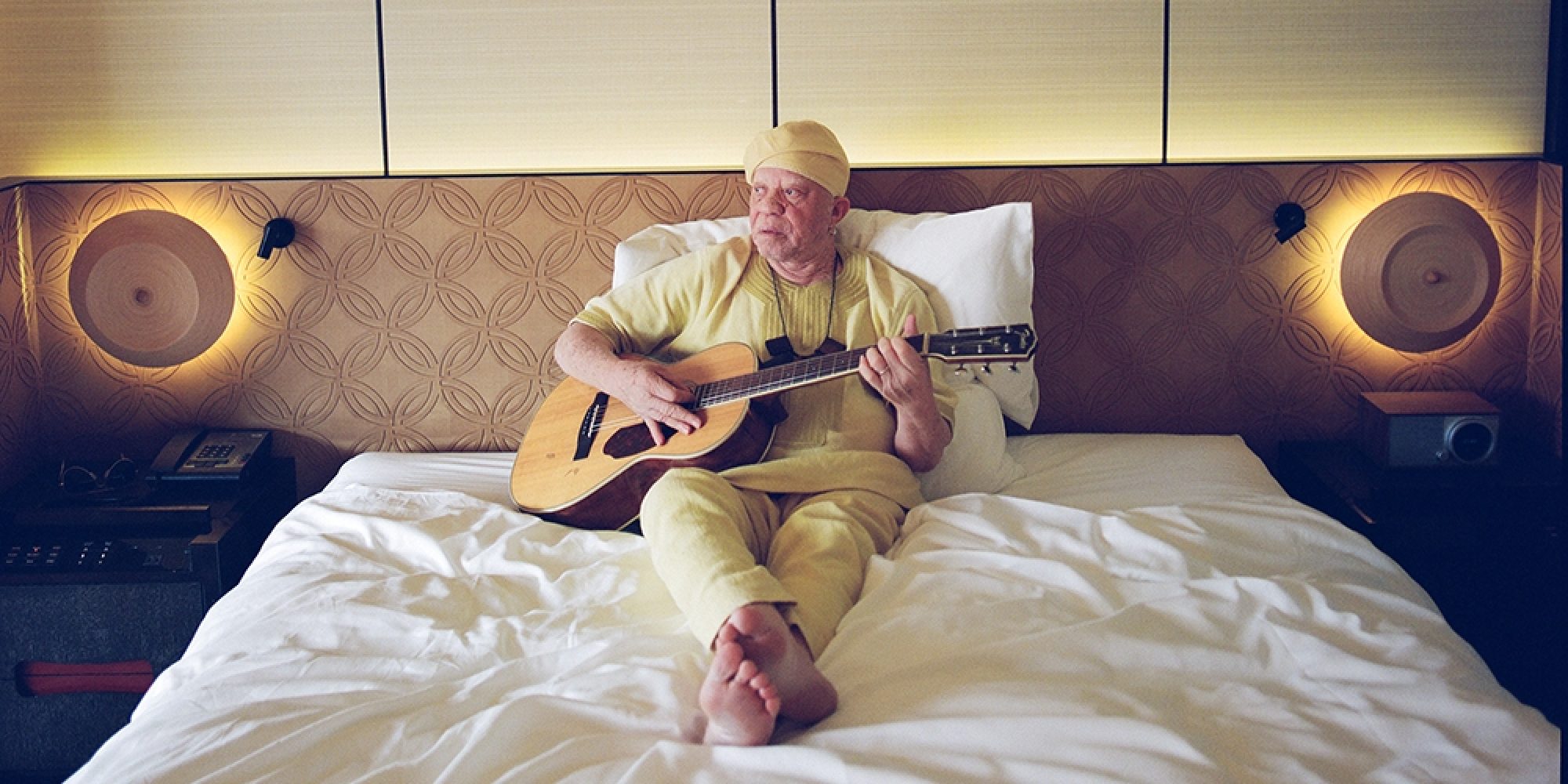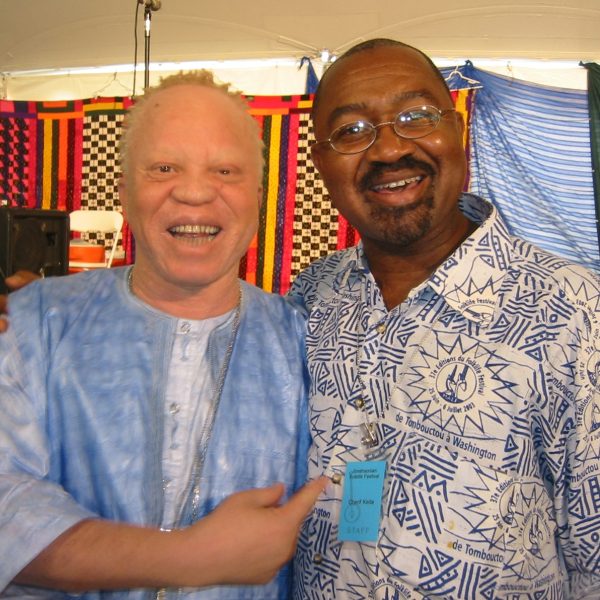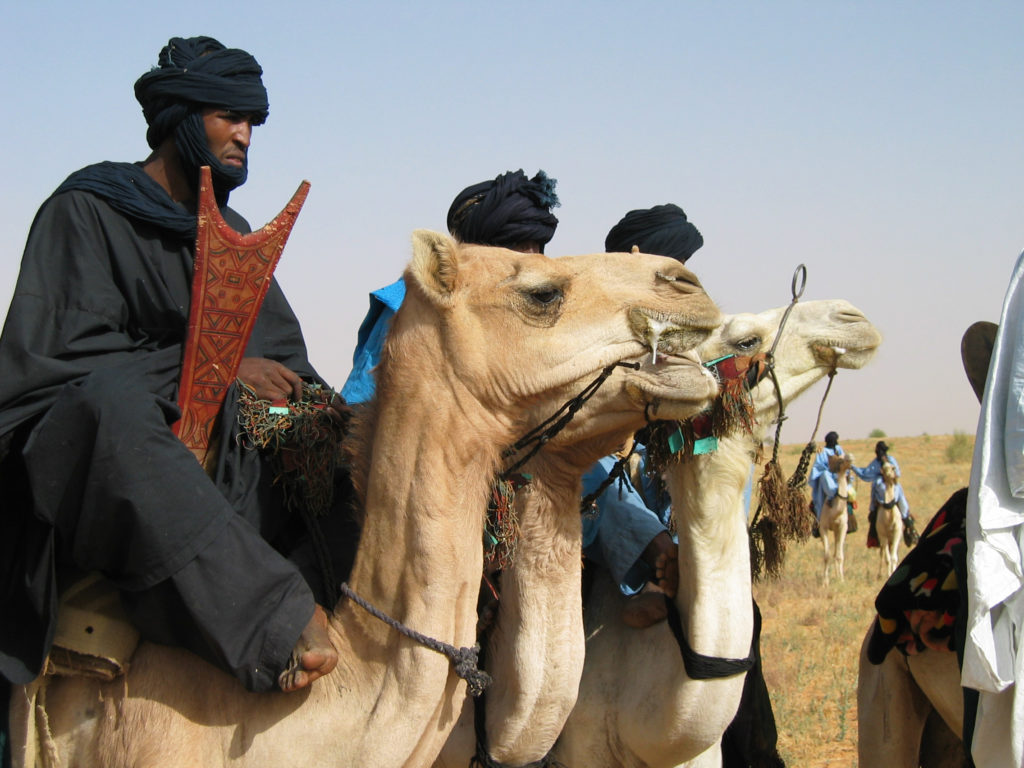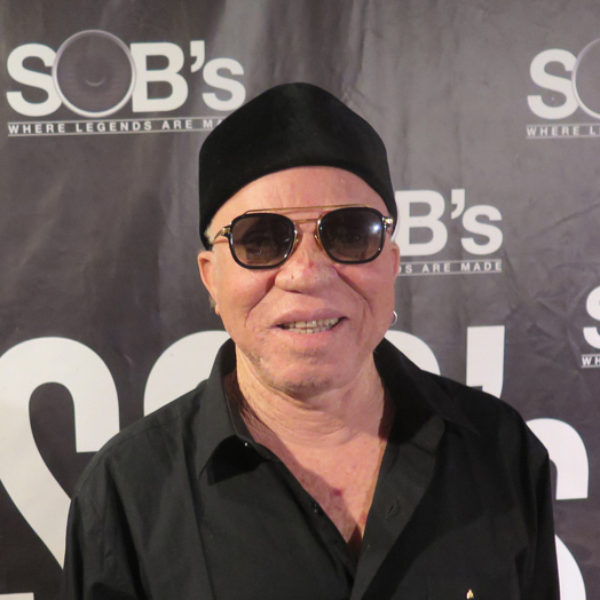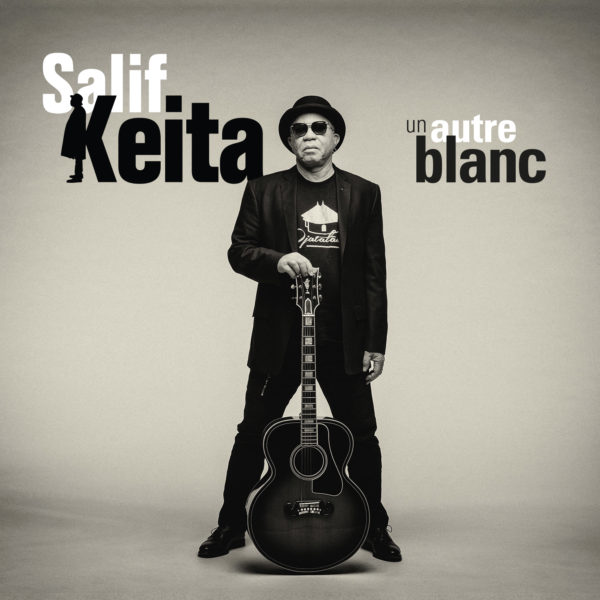When we spoke with Salif Keita before the Pandemic, he told us, not for the first time, that he was ready to retire from recording and performing. Not long afterwards, he released what he said would be his last album, Un Autre Blanc. His urge to withdraw from the world was likely reinforced in 2022 when he lost a key ally, his longtime friend and manager Chris Syren, who died at age 64.
But time has a way of healing wounds and changing minds. And now, Keita has at last honored the request of many fans and colleagues by delivering a truly acoustic album, mostly consisting of his solo singing accompanied by his own delicate guitar playing. As such, So Kono (NØ Format) is an instant classic, and a welcome addition to the artist’s vast and varied recording catalog going all the way back to his days with the Rail Band and Les Ambassadeurs du Motel in the early 1970s. The new album was recorded in a hotel room in Japan in 2023. What we hear is Salif with his acoustic guitar, the instrument he uses to compose for his band, with occasional accompaniment from Badié Tounkara on ngoni and Mamadou Koné on percussion. After listening repeatedly to the nine, gorgeous tracks on So Kono, I reached out to Keita in Bamako for an update interview.
I will note that during the years since Un Autre Blanc, a lot has changed in Mali. There has been a coup, a new government and a general movement away from France and towards Russia as a security partner. In February, 2024, Mali, Niger and Burkina Faso severed ties with the Economic Community of West African States (ECOWAS). All three of these countries are now led by unelected leaders who came to power by coup. As you will read in this interview, Keita is pleased with this new reality, considering it the truest independence Mali has known. He downplays security concerns, despite Al-Qaeda-related killings in Bamako as recently as last September, not to mention the government’s recent move to officially outlaw homosexuality, rendering LGBT citizens throughout the country at risk for prosecution and violence. To be honest, I did not probe these sensitive issues in this interview, which is really about Keita’s music. But his response does give some insight into the unique mind and perspective of one of Africa’s greatest and most idiosyncratic artists.
By the way, plans were in place for Salif Keita to tour with his acoustic band in the U.S. this year, or early next year. For the moment, that plan is off, not because of U.S. visa issues, but because his band is having problems getting visas for Europe. Basically, without a European tour, a U.S. leg is not viable. Is this because France and the EU are making it harder for certain West African artists to get visas? Does it have to do with the new politics in Mali, Niger and Burkina Faso, or possibly about Keita’s closeness to the new Malian leaders? These are open questions for now, but watch this space for more.
All photos by Lucille Reyboz.
Now to Salif Keita!
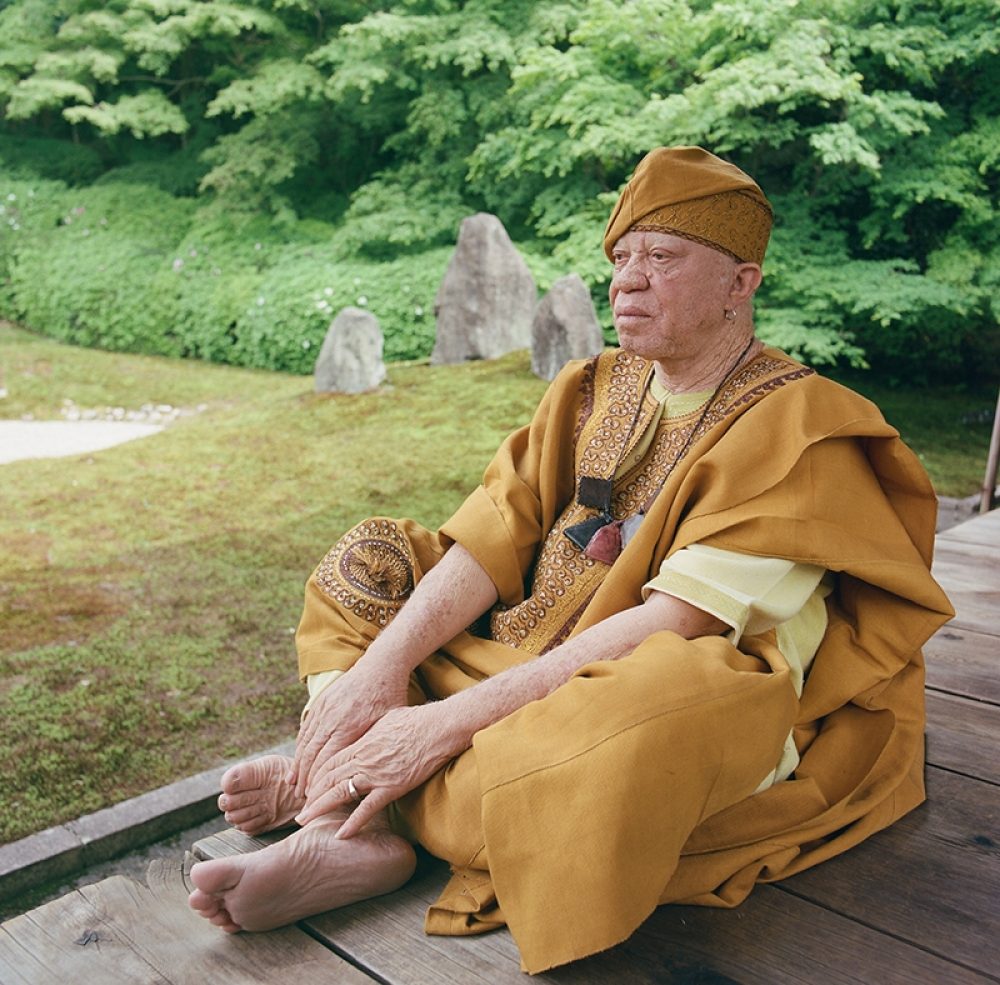
Banning Eyre: Nice to see you, it's been a long time.
Salif Keita: Yeah, that's true, that's true.
So how are things in Bamako?
Bamako is OK.
I hear you’ve just been on tour in Mexico. How was that?
It was very good.
I know there are a lot of people have encouraged you to make an album like this, solo, very acoustic. So how did it finally happen?
The producer is a friend. [That’s Laurent Bizot, founder of NØ Format Records] So he convinced me. I was never going to make an acoustic album because I don't know how to play guitar well enough to be on a record. But when I went to Japan to play at Kyotophonie, he convinced me. I said that I can only play the way I accompany myself when I compose the pieces. He said, “Exactly. This is what we want you to do.” So we went to a hotel room. It all happened in my hotel room.
You have two accompanists. Were you touring in that formation?
Yes. We were there for Kyotophonie, a festival organized by a friend, just one show. So we took advantage of the opportunity to make the album.
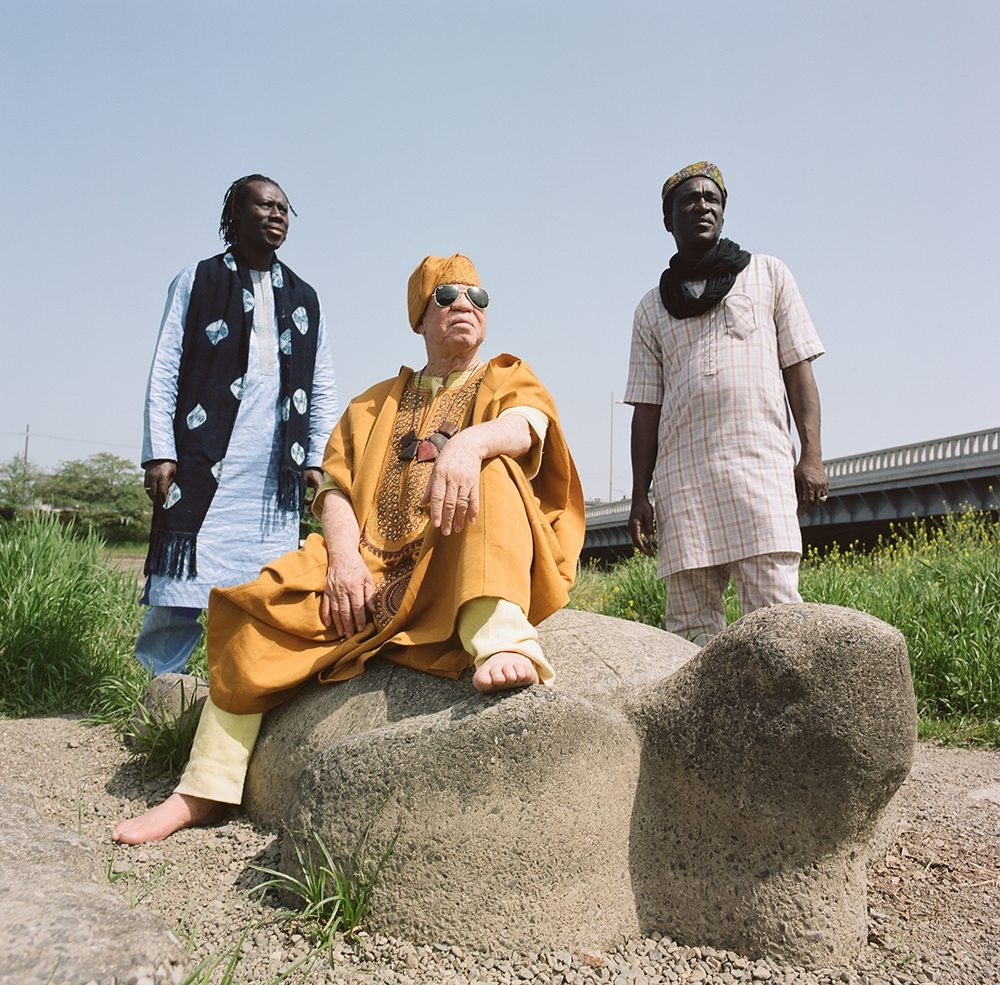
Let's talk about some of the songs on the records. These are original compositions, not traditional songs, right?
Ah, no. Not traditional. Everything is original.
I recognize this new version of “Laban,” from your album M’Bemba. Very beautiful, but let's start from the beginning, the song “Aboubakrin.”
“Aboubakrin” talks about a friend here who supports the less fortunate. He gives a lot of donations to poor people. The song is to congratulate him, to encourage him to keep making these gestures, because we need it here.
Okay. He’s a patron. This reminds me of the late Baba Soro, who was so generous back in the 1990s.
Yeah, exactly. But he does it in a very discreet way and he is very effective at this. We can only encourage him.
For the song “Awa,” you have the trio.
“Awa” is also about a friend, a girl. She does somewhat the same thing.
On the song “Tassi,” we hear a different color in your voice. It’s very soft.
Yeah.
It's interesting all the different colors of your voice on this record, but “Tassi” is almost the sweetest.
That’s because “Tassi” is about a friend who lost her only son. That's why I added a very special tone to my voice for her, because she only had just one boy, and he died, and it affected her. She even stopped working and just walked around wearing her bracelet. I say to her, “God has done his work. It is evident, but we have to move on.”
That is sad. So then we have another dedication here to the great guitarist who you worked with going way back, Manfila Kante.
Yes. In this song I say that he left me alone. He taught me everything. I talk about a bird who refuses to fly. That’s the theme, a bird who refuses to fly. Because, according to us, artists are called birds. He did a lot for African music, and he taught me everything. We complemented each other in songs, in our compositions. But unfortunately, he left me alone on the road.
You have a version of “Sundiata” here, and we know that there are many, many versions of this piece. I always remember when I first met Djelimady [Tounkara] in 1993, he taught me a version that I still play on guitar. But this one is quite different.
My version is different. I say in the beginning, “The winter rain has already started. The grass has started to grow, and the farmers will soon go to the fields. I'm talking mainly about field work and about the neighborhood. I say, “Having a good neighbor brings you to meet good people.” Then at the end, I talk about Sundiata. “The great warrior has disappeared. He did only good and saved his country before leaving.” It's a bit more about social issues.
I see. A “Sundiata” for this moment.
Yes, yes, that's exactly it.
I said that “Tassi” shows the soft side of your voice. Here we get the hurricane. You sing like a griot. Very strong.
(laughs) Oh yes. Because Sundiata was a fighter, a warrior. It's not the same.

Indeed. You have a song called “You Are Going to Miss Me.” What’s that about?
I say I went out with my love. We left for Ouagadougou, and there was someone there who fell in love with her. So I’m telling her, “Don't listen to today's men. Don't listen, don't go, because right now I need you.” Then I talk about Dakar. I talk about Paris. And I say, “If you ever go, if you leave, you are going to miss me.” It's very emotional.
Understood. And the final song, “Proud,” has you singing in French and even English. And you are not playing guitar here. It’s the simbi, the very old Malian harp.
Yes, that's the simbi. The simbi is the ancestor of the kora. It came before the kora and it was played only by nobles. Griots did not play the simbi. It was the instrument of nobles. According to history, Sundiata played the simbi.
And here again, you sing loud and strong, like a griot.
That's true. I say that each person has his destiny. I am albino, and I am proud. I am African, and I am proud. I am who I am and I am very proud of that. Don't be afraid of me. I am coming for peace. I simply want to live in harmony and at peace with people.
And you are the one playing the simbi, right?
Yes, I'm playing the simbi.
We rarely hear this instrument, so this is quite special. So, Salif, now that you have finally recorded an acoustic album, are you returning to recording? Will there be another album with your band?
Ah, yes. I am preparing an album that I think will be released in 2026, with the whole group.
And will you do electric versions of some of these pieces here?
Maybe I'll play “Proud” in electric. All the rest will be new.
You’re probably tired of hearing this, but I do recall you saying that you were done with touring. What changed?
Yeah, but hey, in this profession. We are always tempted. It's our life, and if we don't do it, we get bored. We miss it often.
I see. It's a calling. You can't live without it.
Yeah, yeah, it's part of me, honestly.
Well, we are happy to hear that.
Thank you very much.
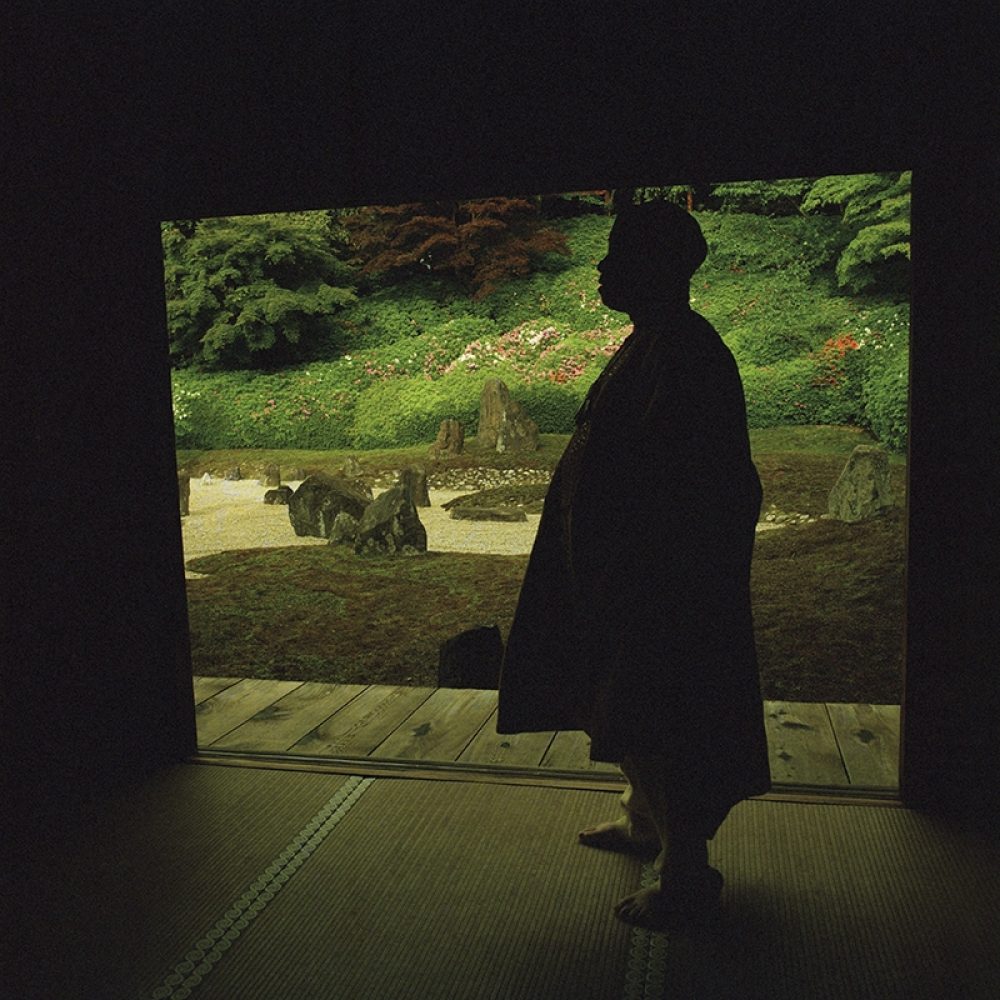
We would miss you too much. So Salif, I have to ask. The situation in Mali has changed a lot. I remember when I first saw came there in the early ‘90s. It seemed a hopeful time with the coming of democracy. I was staying with Djelimady and I remember how pleased and optimistic he was. That feels like a long time ago. You and I have talked about the problems of 2012, and the rise of Islamic extremists. How do you see the situation right now. What do you think about the future of Mali at this time?
I believe that Mali has never had a chance like this, from independence until now, because truly, it is true freedom that has begun. True freedom. Our foundation belongs to us. Our future is in our hands. We are in a very free way and really, I think that's all we were looking for.
So you have confidence in the new leaders.
Yeah, absolutely. Listen. We couldn't even go to Kidal before. The country was cut off and sold. The country was completely sold. The country, Mali, did not exist. Now, look at the new leaders who are there. They have recovered all of Malian territory, even if there are still attacks, they are fewer and fewer. We are in the process of finding the solution and eliminating all the attacks that are being made against us now. We know why. We know who is doing what, and really, we are very proud of the leaders now because Mali is coming out of the hole to be free, truly free.
I am curious about the situation of musicians there now, because just before the problems of 2012, there was a lot of exchange. Many Europeans and Americans were coming to Bamako to work with musicians. It was a good time and all that got cut off with the problems. Now I think a lot of people are afraid to go to Mali, and that's sad. Do you think this will change, that things will be better, more stable, with better conditions for people who want to come there for the music?
Of course. Of course, the problems are going to end. Mali can't be anything other than this. Mali is a hospitable country that needs the people who will come, and we're used to blending in with the whole world. We're ready to welcome everyone; we have to do that. We can't do anything else. Mali is like that. All Malians are welcoming; they are hospitable; we cannot refuse people here.
Well, that's good to hear, I certainly want to come back.
You must. We need you.
Have you seen my friend Djelimady? It's been awhile since we spoke.
For me too. But before I go on tour, I'll come and see him.
Be sure to tell him we spoke. I sent him a copy of my guitar album, but I have not heard what he thinks of it. Anyway, it's a great pleasure to hear that things are moving towards peace again in Mali because we need that.
No, peace will come. There is already peace. It's the attacks that are messing us up. But there is peace here.
I know there are still some problems up north, but do you think this government is serious about fighting for the Islamists and terrorists?
Well, we are looking for the next steps. But there are many, many Malian expatriates returning home. They have liberated many parts of the country, even up to the Algerian border. They have freed them. Everything is now in place in the north.
I hope so. We need to bring back the Festival in the Desert.
That's it, that's exactly it.
Well, it’s great to speak with you again. We’re having some issues over here as well, as you may have heard.
Yeah, I heard. (laughs) It’s not the first time, but it’s going to change.
I hope so. Some of us are not pleased over here, but things go up and they go down. Meanwhile, I send you greetings from Sean Barlow, Georges Collinet and everyone at Afropop.
Thank you! Thank you!








